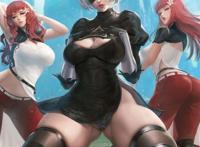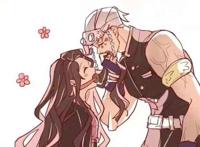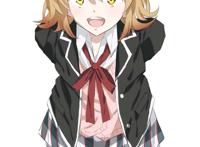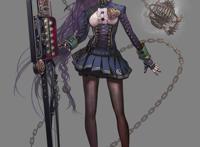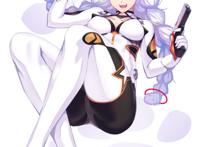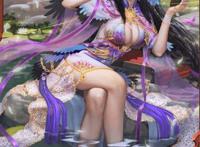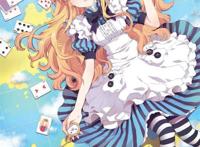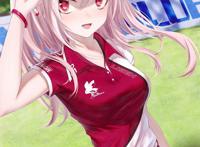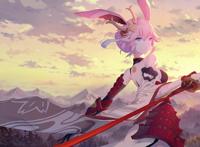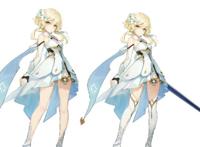冰与火之歌卷Ⅰ:权力的游戏中英文双语同步对照版 第1篇 BRAN(24)
“在那里。”琼恩道,他掉转马头,急驰过桥,大家看着他在母狼尸体旁下马,屈膝跪下,一会儿过后又骑马归来,满面笑容。
“He must have crawled away from the others,”Jon said.
“这只一定是先爬开了。”琼恩说。
“Or been driven away,” their father said,looking at the sixth pup. His fur was white, where the rest of the litter wasgrey. His eyes were as red as the blood of the ragged man who had died thatmorning. Bran thought it curious that this pup alone would have opened his eyeswhile the others were still blind.
“或是被赶开的。”他们的父亲看着第六只小狼说。它毛色净白,其他的小狼则多半灰黑,它的眼瞳红如早上死囚的鲜血。布兰很觉好奇,不知为何其他小狼连眼睛都还没睁开,惟独它双目炯炯有神。
“An albino,” Theon Greyjoy said with wryamusement. “This one will die even faster than the others.”
“白子,”席恩·葛雷乔伊话里有种兴味十足的讥讽,“只怕这只会死得最快。”
Jon Snow gave his father’s ward a long,chilling look. “I think not, Greyjoy,” he said. “This one belongs to me.”
琼恩·雪诺给了他父亲的养子一个意味深长的冷绝凝视,“葛雷乔伊,我可不这么认为。”他答道,“因为这是我的狼。”
※※※※※※
① 传说“森林之子”(Childrenof the Forest)早在“先民”(First Men)渡过狭海而来 以前便已存在。他们信仰树林溪涧等自然间的无名神祗,后来先民也加入了这个信仰。
② 养子(ward)原意指年幼时到其他贵族家生活,直到成年才回家的贵族子弟。有可能是为了增进两家友好关系,如艾德和劳勃年幼时曾到琼恩·艾林家做养子,或是战败将儿子送到战胜者家里当人质,例如席恩。中国古代称之为“质子”,为避免读者觉得怪异,本书中一律用“养子”代之。
“He must have crawled away from the others,”Jon said.
“这只一定是先爬开了。”琼恩说。
“Or been driven away,” their father said,looking at the sixth pup. His fur was white, where the rest of the litter wasgrey. His eyes were as red as the blood of the ragged man who had died thatmorning. Bran thought it curious that this pup alone would have opened his eyeswhile the others were still blind.
“或是被赶开的。”他们的父亲看着第六只小狼说。它毛色净白,其他的小狼则多半灰黑,它的眼瞳红如早上死囚的鲜血。布兰很觉好奇,不知为何其他小狼连眼睛都还没睁开,惟独它双目炯炯有神。

“An albino,” Theon Greyjoy said with wryamusement. “This one will die even faster than the others.”
“白子,”席恩·葛雷乔伊话里有种兴味十足的讥讽,“只怕这只会死得最快。”
Jon Snow gave his father’s ward a long,chilling look. “I think not, Greyjoy,” he said. “This one belongs to me.”
琼恩·雪诺给了他父亲的养子一个意味深长的冷绝凝视,“葛雷乔伊,我可不这么认为。”他答道,“因为这是我的狼。”
※※※※※※
① 传说“森林之子”(Childrenof the Forest)早在“先民”(First Men)渡过狭海而来 以前便已存在。他们信仰树林溪涧等自然间的无名神祗,后来先民也加入了这个信仰。
② 养子(ward)原意指年幼时到其他贵族家生活,直到成年才回家的贵族子弟。有可能是为了增进两家友好关系,如艾德和劳勃年幼时曾到琼恩·艾林家做养子,或是战败将儿子送到战胜者家里当人质,例如席恩。中国古代称之为“质子”,为避免读者觉得怪异,本书中一律用“养子”代之。
 被捉弄的缩小之命运游戏
被捉弄的缩小之命运游戏


